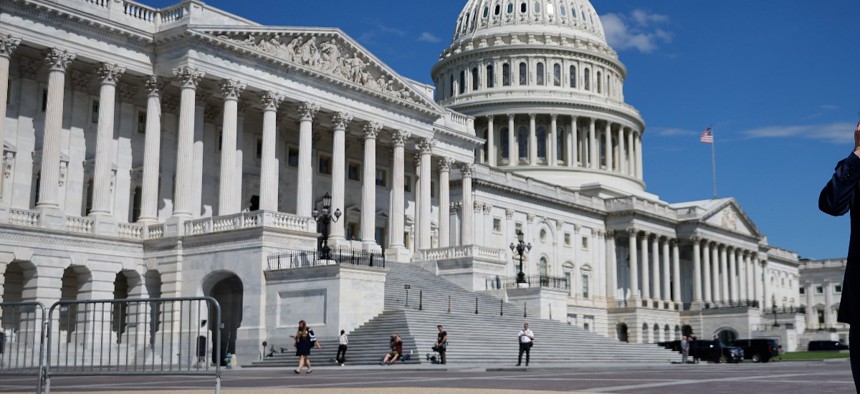A Look Into Proposed Tech Amendments for the 2023 NDAA

Chip Somodevilla/Getty Images
Hot topics proposed as add-ons to the Defense budget bill included expanded artificial intelligence investment and supply chain independence.
Funding for new and emerging technologies is featured heavily in several Senate amendments proposed for the 2023 National Defense Authorization Act, underscoring Capitol Hill’s enthusiasm and technology’s increasing role in modernizing national security.
Among the leading topics present in the slew of the more tech-centric amendments is artificial intelligence. Senators Rob Portman, R-Ohio, and Gary Peters, D-MI, submitted Peters’s previously introduced bill, the Advancing American AI Act, for NDAA inclusion. The amendment would establish AI data libraries to better organize federal AI initiatives and foster greater private sector collaboration.
“With broad, bipartisan support this year’s NDAA increases funding for our national defense, invests in the platforms and infrastructure our military needs, and delivers critical resources for our allies and partners around the globe,” Sen. Jack Reed, D-R.I., said in a press release on the Senate version of the bill. “To ensure our technological superiority, it strengthens our cyber, hypersonic and artificial intelligence capabilities, giving our forces advantages on the battlefields of the future.”
Other prominent amendments requesting AI funding allocations include the establishment of the United States-Israel Artificial Intelligence Center, which would foster bilateral collaboration on the development of several key AI components, including image classification, object detection, data labeling and natural language processing.
Additional oversight and review of the Department of Defense’s investment in AI systems within categories like robotics and automation—along with increased investment in supply chains and manufacturing of AI and other emerging technologies—were also among the top funding proposals submitted by lawmakers.
Restricting access to technological products created in China also stood out as a prominent topic among tech amendments. One amendment calls for greater restrictions on unmanned aircraft systems that are based in or have ties to the Chinese government or other foreign bodies. Another amendment seeks to share technology and other military equipment with Taiwan to further the U.S.’s economic partnership with the island, while the Israel-U.S. AI partnership would prohibit working with any entity that is linked to China.
Fostering semiconductor manufacturing independence—one of the Biden administration’s larger infrastructure goals—also made it into the final steps of the NDAA through an amendment that aims to strengthen the supply chains of critical goods.
This is another effort to reduce dependence on China’s semiconductor industry amid growing geopolitical tension, as a supporting amendment—and existing provisions within the draft NDAA—call for a prohibition on semiconductors affiliated with Chinese technology corporations.
A large swath of federal funding was also proposed for the Maritime Administration within the Department of Transportation. The amendment comes with provisions requiring investments in information technology systems within U.S. shipbuilding and the implementation of more environmentally-friendly marine technologies across the agency.






